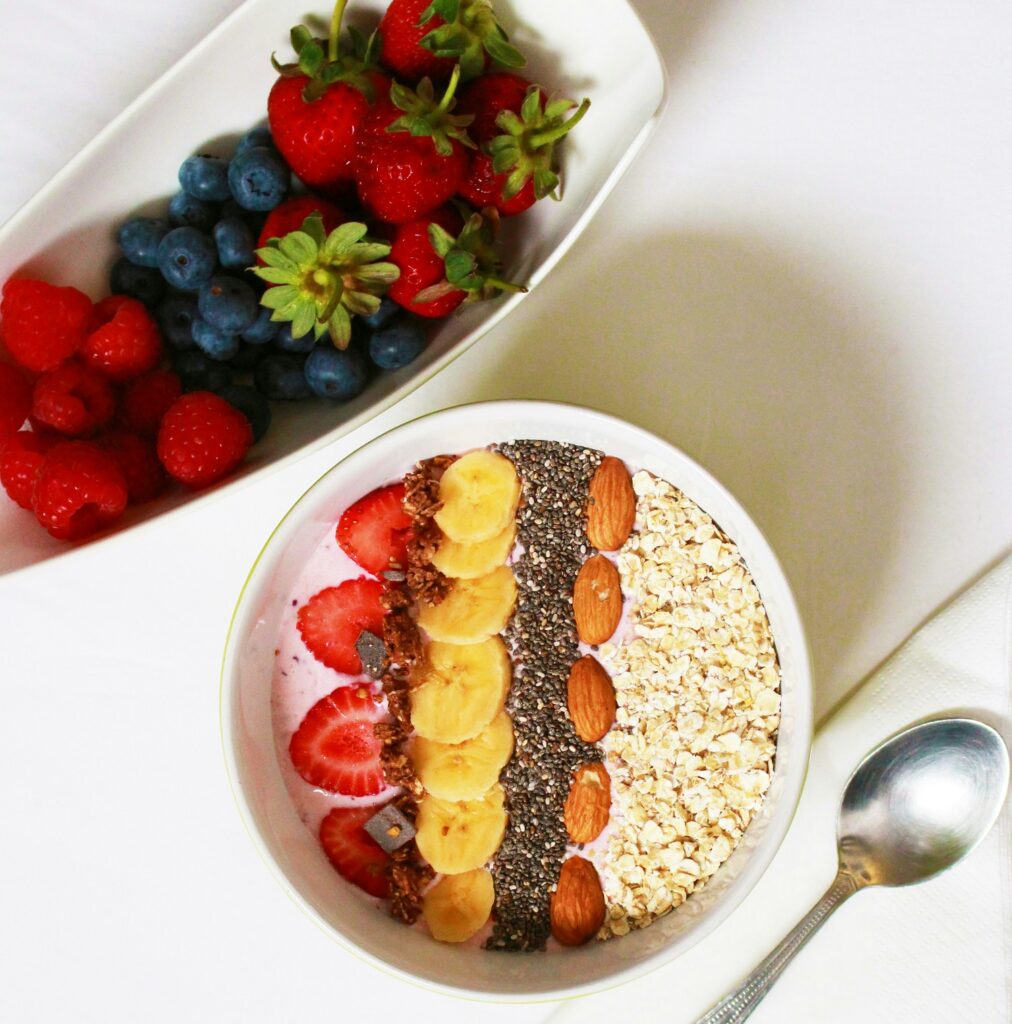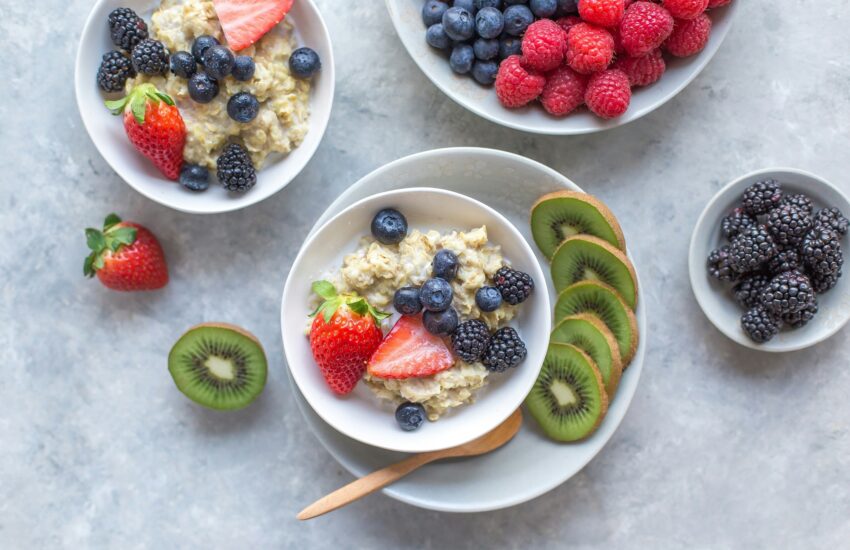Fiber is one of the most important components of a healthy diet, yet it is often overlooked or underestimated. Despite not being digestible by the body, fiber plays a crucial role in supporting numerous bodily functions. It is found in plant-based foods such as fruits, vegetables, whole grains, legumes, nuts, and seeds, which, when included regularly in the diet, provide a wide array of health benefits. This article will delve into the various reasons why fiber-rich foods are indispensable for maintaining optimal health, ranging from digestive well-being to long-term chronic disease prevention and beyond. Mohit Tandon suggest some reasons which shows why fiber-rich foods are essential for health.
1. Digestive Health and Regularity
One of the most well-known benefits of fiber is its ability to promote digestive health. Fiber comes in two main forms: soluble and insoluble. Each type of fiber plays a specific role in supporting digestion, improving gut health, and maintaining regular bowel movements.
1.1. Preventing Constipation
Insoluble fiber, which is found in foods such as whole grains, seeds, and the skins of fruits and vegetables, adds bulk to stool. This bulkiness makes it easier for the stool to pass through the intestines and be eliminated from the body. For individuals who suffer from constipation, a diet rich in insoluble fiber can help to alleviate the condition by improving bowel regularity.
Furthermore, the fiber in foods like apples, carrots, and cucumbers has a mild laxative effect. This natural remedy helps to soften stools and ease their passage through the intestines. This is particularly beneficial for older adults and people who lead sedentary lifestyles, who may be more prone to constipation. – Mohit Tandon USA
1.2. Maintaining a Healthy Gut
Fiber, particularly soluble fiber, acts as a prebiotic, which means it provides food for the beneficial bacteria in the gut. The human gut microbiome contains trillions of microorganisms, and maintaining a healthy balance of these bacteria is essential for proper digestion, nutrient absorption, and immune function.
When fiber is consumed, it passes through the digestive tract and is fermented by the beneficial bacteria in the colon. This fermentation process produces short-chain fatty acids (SCFAs), which are vital for the health of the colon and play a key role in reducing inflammation. A healthy gut microbiome also contributes to a reduction in the risk of various gastrointestinal disorders, including irritable bowel syndrome (IBS), inflammatory bowel disease (IBD), and colorectal cancer.
2. Weight Management
Fiber-rich foods play a significant role in managing and maintaining a healthy weight. They are inherently low in calories but provide high volume, which can make you feel full without overeating.
2.1. Promoting Fullness
One of the key mechanisms through which fiber helps with weight management is by promoting a sense of satiety. Fiber slows the rate at which food leaves the stomach, prolonging the feeling of fullness after a meal. This delay in stomach emptying helps to curb hunger and reduce the likelihood of overeating or snacking between meals.
Many fiber-rich foods, such as vegetables, fruits, legumes, and whole grains, are high in water content, which further increases their volume. This means that you can eat a large portion of these foods without consuming excessive calories, thus helping to control your calorie intake.
2.2. Managing Appetite
Fiber also affects hormones involved in appetite regulation, such as ghrelin and leptin. Ghrelin is a hormone that stimulates hunger, and fiber consumption can reduce its levels. Meanwhile, fiber increases levels of leptin, a hormone that signals fullness to the brain. Together, these effects help to regulate appetite and prevent overeating.
2.3. Stabilizing Blood Sugar Levels
Fiber-rich foods help regulate blood sugar levels by slowing the absorption of glucose from the digestive tract into the bloodstream. This not only helps control blood sugar spikes after meals but also prevents insulin resistance, a condition that often leads to obesity and type 2 diabetes.
By stabilizing blood sugar and reducing insulin resistance, fiber can help individuals manage their weight more effectively, particularly in those with metabolic disorders.
3. Heart Health
One of the most well-documented health benefits of fiber is its positive effect on heart health. Numerous studies have shown that a high-fiber diet can reduce the risk of cardiovascular diseases (CVD), including heart attack, stroke, and hypertension.
3.1. Lowering Cholesterol Levels
Fiber, particularly soluble fiber, has been shown to reduce LDL (low-density lipoprotein) cholesterol, commonly referred to as “bad” cholesterol. Soluble fiber binds to cholesterol molecules and helps remove them from the bloodstream by excreting them through feces. By lowering LDL cholesterol levels, fiber-rich foods help prevent the buildup of plaque in the arteries, a key factor in the development of atherosclerosis (hardening of the arteries), which can lead to heart attacks and strokes. – Mohit Tandon USA
Foods that are rich in soluble fiber include oats, barley, beans, lentils, and citrus fruits.
3.2. Reducing Blood Pressure
High blood pressure (hypertension) is a major risk factor for heart disease. Fiber-rich foods, especially those containing potassium, such as bananas, sweet potatoes, and leafy greens, help balance the effects of sodium in the body. Potassium helps relax blood vessels, reducing strain on the heart and lowering blood pressure.
Additionally, fiber helps reduce inflammation throughout the body, which is another contributing factor to hypertension and heart disease. The anti-inflammatory properties of fiber-rich foods help to maintain healthy blood vessels and improve overall cardiovascular function.
3.3. Preventing Heart Disease
Incorporating fiber into the diet can significantly lower the risk of developing heart disease. By improving cholesterol levels, lowering blood pressure, and reducing inflammation, fiber-rich foods help maintain a healthy heart. Studies have shown that people who consume high amounts of fiber have a reduced risk of coronary heart disease and other cardiovascular conditions.
4. Blood Sugar Regulation
The ability of fiber-rich foods to regulate blood sugar levels is particularly beneficial for individuals with type 2 diabetes or those at risk of developing the condition.
4.1. Improving Insulin Sensitivity
One of the ways fiber benefits blood sugar regulation is by improving insulin sensitivity. Insulin is a hormone that allows the body to use sugar for energy. In individuals with insulin resistance, the body becomes less responsive to insulin, leading to high blood sugar levels. Fiber helps improve insulin sensitivity by slowing the absorption of sugar into the bloodstream and enhancing the body’s ability to respond to insulin. This reduces the risk of developing type 2 diabetes and helps individuals manage their condition.
4.2. Preventing Blood Sugar Spikes
Fiber slows the digestion and absorption of food, which helps prevent rapid spikes in blood sugar levels after meals. This gradual release of glucose into the bloodstream not only helps maintain steady energy levels but also prevents the damage caused by fluctuating blood sugar levels.

5. Lower Risk of Chronic Diseases
A high-fiber diet has been shown to significantly reduce the risk of several chronic diseases, including heart disease, stroke, type 2 diabetes, and some forms of cancer.
5.1. Reduced Risk of Colorectal Cancer
Fiber is particularly beneficial in reducing the risk of colorectal cancer. The fermentation of fiber in the colon produces short-chain fatty acids (SCFAs). It help maintain the health of the colon lining and protect it from damage. Additionally, fiber speeds up the transit time of food through the intestines, reducing the exposure of the colon to potentially harmful substances. Regularly consuming fiber decreases the risk of colorectal cancer, making it a vital part of a cancer-preventive diet.
5.2. Reducing the Risk of Stroke
Fiber has been shown to reduce the risk of stroke, another major health condition that can result from poor cardiovascular health. By improving blood pressure, reducing cholesterol levels, and preventing plaque buildup in the arteries, fiber-rich foods reduce the risk factors associated with stroke.

6. Skin Health and Detoxification
A healthy digestive system and the elimination of toxins are essential for maintaining clear, healthy skin. Fiber plays a key role in this process by supporting regular bowel movements and detoxification.
6.1. Clearer Skin
When the digestive system is not functioning properly, toxins may accumulate in the body and be released through the skin, leading to conditions such as acne and eczema. By promoting regular elimination of waste through fiber-rich foods, the body is better able to detoxify, reducing the burden on the skin and helping to clear up skin issues.
6.2. Detoxifying the Body
Fiber helps the body rid itself of toxins by ensuring that waste moves efficiently through the intestines and is excreted. In addition, certain fibers, such as those in fruits and vegetables, contain antioxidants that protect the liver and other detoxification organs from damage. – Why Fiber-Rich Foods are Essential for Health : Mohit Tandon USA
Conclusion
Fiber-rich foods are indispensable for maintaining optimal health. They support healthy digestion, assist in weight management, improve heart health, regulate blood sugar levels, and protect against chronic diseases. Incorporating fiber-rich foods into the diet is one of the simplest and most effective ways to boost overall health and longevity. With so many benefits, from promoting gut health to preventing serious conditions like heart disease and cancer, fiber is a dietary component that should not be overlooked.
As we have seen, fiber is more than just a “filler” in our food; it is a powerful ally in maintaining good health, promoting wellness, and preventing disease. To reap these benefits, it is important to consume a variety of fiber-rich foods regularly, including fruits, vegetables, whole grains, legumes, and seeds. A fiber-rich diet is an essential part of a healthy lifestyle that will benefit your body in the long term.
